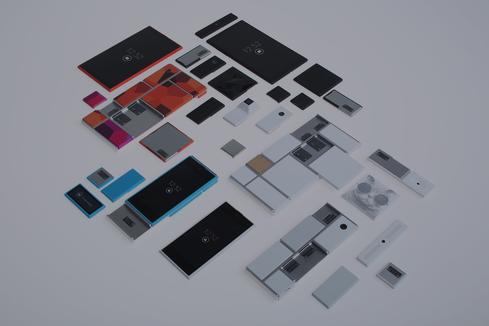Google, Intel Show Latest ChromebooksGoogle, Intel Show Latest Chromebooks
Acer, ASUS, Dell, HP, Lenovo, LG, and Toshiba have updated their Chrome OS hardware.

Google's 10 Big Bets On The Future
Google's 10 Big Bets On The Future (Click image for larger view and slideshow.)
At a media event in San Francisco, Calif., on Tuesday, Navin Shenoy, VP and general manager of Intel's mobile client platforms group, introduced a revised lineup of Chrome OS devices from Google's hardware partners.
Shenoy showed off a new Chromebox from HP, coming in June, aimed at consumers and businesses, and LG's Chromebase, a Chrome OS desktop computer similar to Apple's iMac. Both rely on Intel Celeron chips based on the company's Haswell microarchitecture. The Chromebase will be available on May 26 with a suggested price of $349.
Shenoy also presented Celeron-based Acer, ASUS, Lenovo, and Toshiba devices that are the first to employ Intel's Bay Trail-M system-on-a-chip (SoC), silicon, which promises up to 11 hours of battery life. Bay Trail processors are designed for mobile devices and thus prioritize power conservation over computational might. Chrome OS devices using Bay Trail processors run quietly because they do not include a fan.
[Will a smaller version of Microsoft's Surface tablet sell better? Read Microsoft Surface Mini Likely Debuts May 20.]
Lenovo, which has shipped Chromebooks for the education market, launched its first consumer Chromebooks, the N20 ($279) and N20p ($329). Both are laptops but the N20p screen -- like that of its education market analog, the Thinkpad YOGA 11e Chromebook -- can flip back all the way so that it rests on the underside of the keyboard, as if it were imitating a tablet.
Shenoy said that this summer, Acer and Dell plan to introduce devices based on Intel's fourth-generation Core i3 processor, a processor tuned more for performance than battery life. A step up from the entry-level Celeron processor, the Core i3 provides a better experience when using multiple browser tabs or processor-intensive Web applications.
Dell expects to offer a Core i3 version of its Chromebook 11, presently offered to education customers, to business customers later this year. Acer should make its Core i3-based C720 Chromebook available about the same time.
All of Intel's Chrome devices are powered by "conflict-free" microprocessors, which is to say that the electronics do not rely on metals sourced from mines under the control of armed groups in the Democratic Republic of Congo or neighboring countries.
Caesar Sengupta, VP of product management for Chrome OS, said Google was pleased with the momentum of Chrome OS. "The whole experience is resonating really well with our customers," he said.
Sengupta noted that six of the top 10 laptops on Amazon are Chromebooks and that all of the six best rated laptops on Amazon are Chromebooks. Since September, he said, the number of schools using Chromebooks has doubled and now stands at almost 10,000.
Sengupta said Chrome OS users can look forward to being able to watch movies offline, with the launch of the forthcoming Google Play movies app. Limited offline functionality has long been considered a problem for Chrome OS devices, but has become less so as Google has adapted more of its Web apps to run offline.
Sengupta resisted the suggestion that Chromebook vendors face a challenge differentiating commoditized Chrome OS hardware. Chromebooks, he said, are a combination of hardware, software, and the overall experience. Things such as keyboard quality, screen size, and hinge quality can make a big difference to users, he said.
Asked whether we'll see Chrome OS tablets, Sengupta remained non-committal.
What do Uber, Bank of America, and Walgreens have to do with your mobile app strategy? Find out in the new Maximizing Mobility issue of information Tech Digest.
About the Author
You May Also Like






